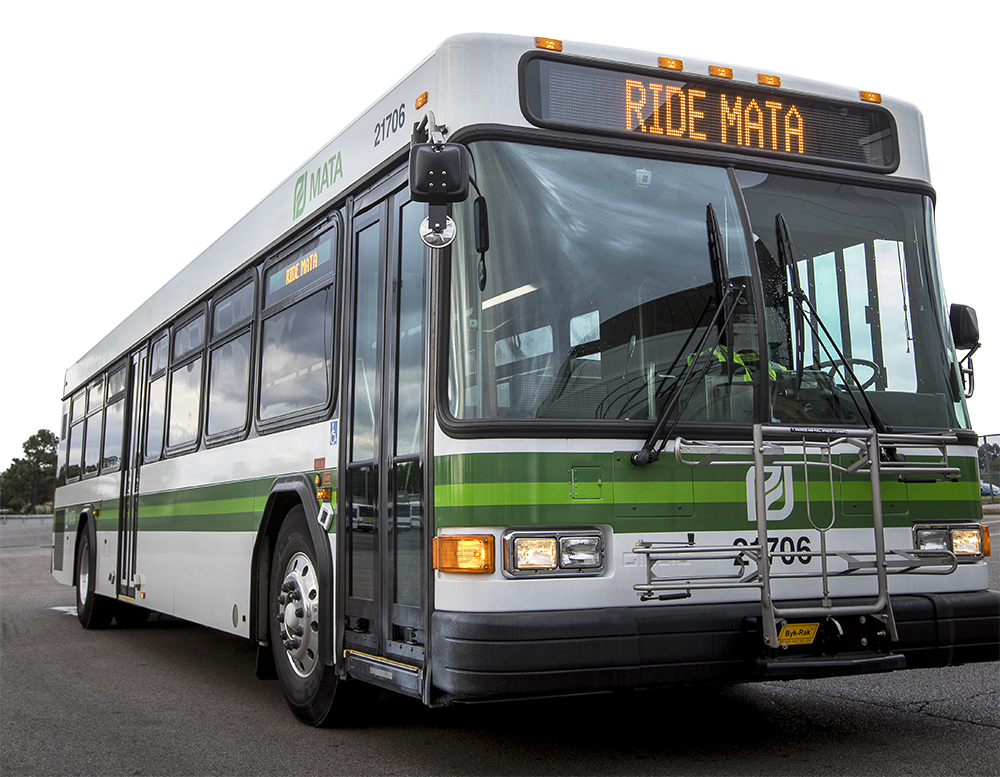The Memphis Area Transit Authority (MATA) said their primary goals are to improve the agency’s operational and financial viability as interim leadership continues efforts to transform the agency.
Today the interim leadership team, comprised of TransPro consultants, gave a monthly update to Memphis City Council’s transportation committee.
John Lewis, interim CEO, said the leadership team has reviewed all non-employee spending to identify “unnecessary and redundant” charges while also stopping “non-safety certification-related travels” for MATA personnel. They have also changed the employee expense reimbursement policies.
“The majority of spending has got to be focused on putting transit service on the street and not towards supporting unnecessary or redundant administrative funding, as has been the practice in the past,” Lewis said.
Officials also said they have gained access to the agency’s American Express account to suspend usage and look into the previous spending. Lewis said this is to stop future misappropriation of agency funds.
Aaron Headley, interim CFO, said MATA is also working to optimize the city’s investment. They are currently working on minimizing the amount of past-due payments with a target of less than 10 percent.
Councilwoman Michalyn Easter-Thomas questioned whether the agency had the data to show optimization of the city’s investment, to which officials said this is an intended outcome.
The presentation showed that the amount of past due payables was at 94 percent as of March 7th, and it stayed the same as of March 26th. Headley said this is because they are “laser-focused” on getting more buses on the road and making sure they don’t run out of money.
Lewis said they are working to finalize their FY26 budget with extra focus on “eliminating wasteful spending” from both administration and vendor services.
Councilman Jeff Warren questioned whether or not the agency could switch to smaller buses on routes that aren’t as full. He suggested that this may be a better spend than to continue purchasing larger buses as they could improve cost-saving measures, efficiency, and timeliness.
Lewis explained there are opportunities for smaller vehicles; however, their main concern is stabilizing the agency.
“Getting into service design is further down the road for us,” Lewis said.
Warren responded that stabilizing the agency may be difficult if only a percentage of buses are available to complete routes.
Thomas asked if they are able to receive the data that the agency is using to complete their monthly reports even though officials said they are “ongoing.” Board chair Edmund Ford Sr. said that questions such as these could not be discussed in regular session, but rather in attorney-client session.
Councilwoman Yolanda Cooper-Sutton asked how MATA plans to rebuild the community’s trust in terms of reliability and on-time performance. She said the current model is a “failing” one and advised MATA to not ask for more money if they plan to do the same thing.
“I understand that getting the money is most important, but getting the trust back — what does your model look like?” Sutton asked. “More service on the street, but you don’t have the people to ride. They’ve made other means because they were forced into a place where they had to find other means.”
Anna McQuiston, vice chair of MATA’s board of commissioners, said the interim leadership team realizes that community trust is broken, yet she didn’t think the model was broken; rather, the agency did not deliver on their promises.
“Our number-one priority right now is to deliver on the service that we tell people we’re going to provide,” McQuiston said. “We’re not doing that right now. We’ve got to deliver on time. We need the buses to show up, and that to me is the first step of many that we need to make to build back that community trust. That has been one of the priorities the board has asked for considering all these things.”

